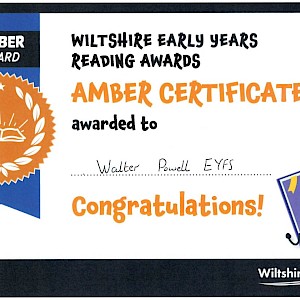
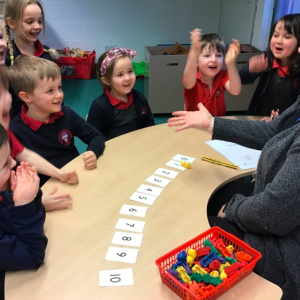
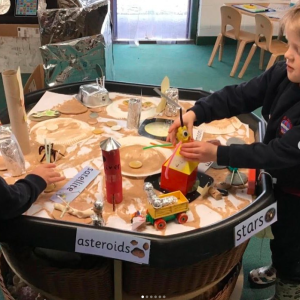
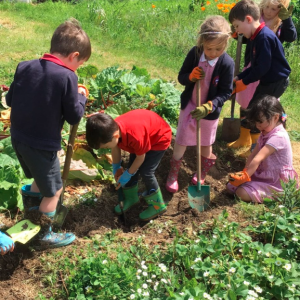
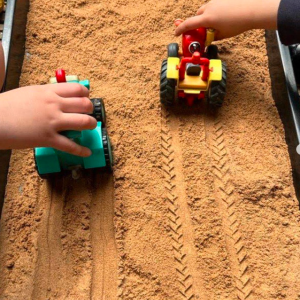
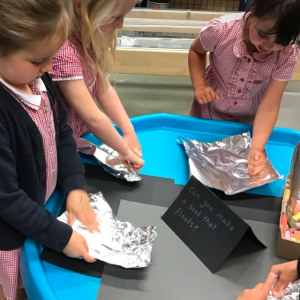
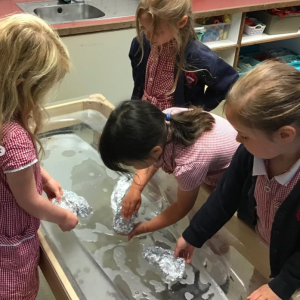
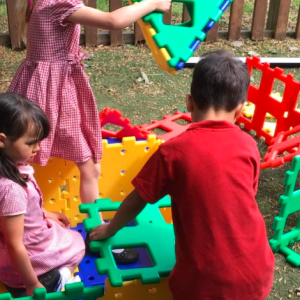
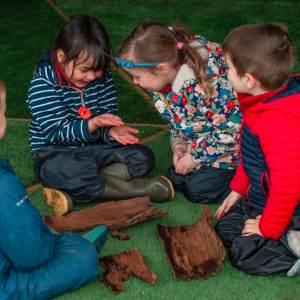
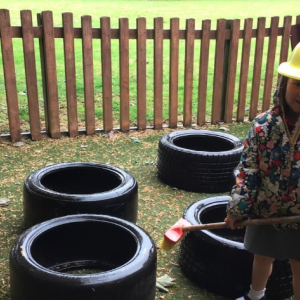
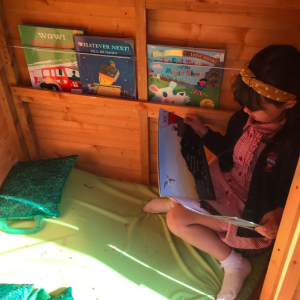
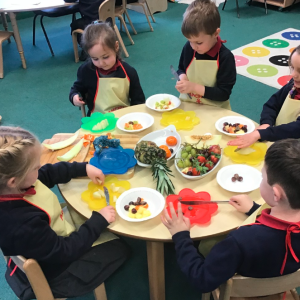
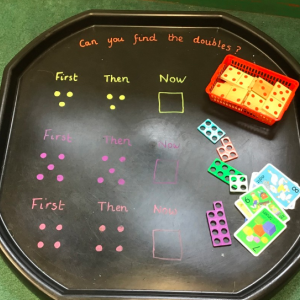
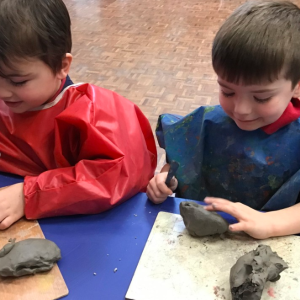
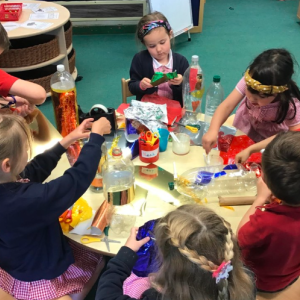
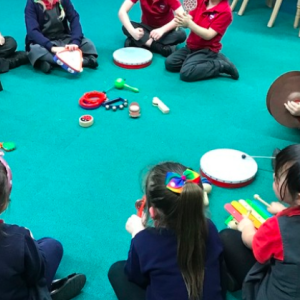
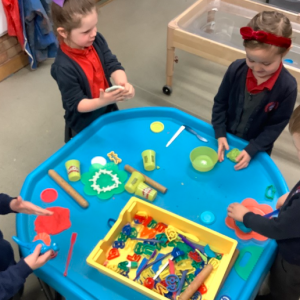
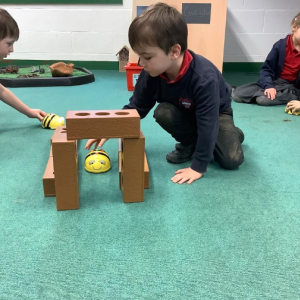
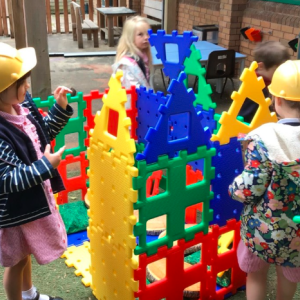
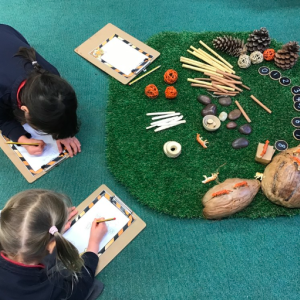
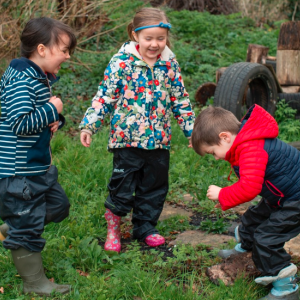
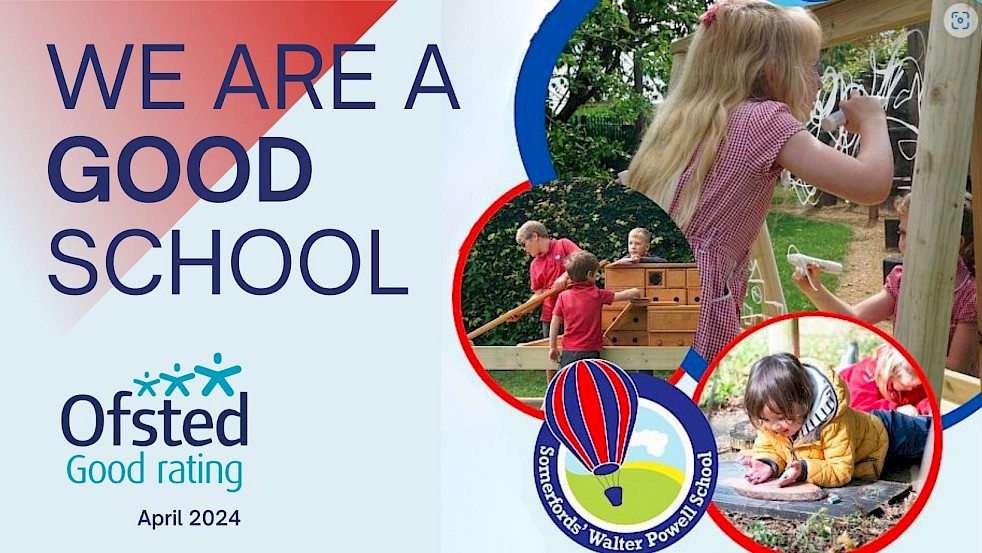





















At the Vine Schools, Early Years education means an exciting and balanced curriculum that encourages exploration and independent learning. We always put the child at the centre of the learning, making learning enjoyable and accessible to all. The uniqueness of every child is recognised and valued. As such, our curriculum embraces the community from which it exists, recognising and celebrating the diverse backgrounds and experiences from which our children originate. We constantly adapt our learning journey to meet the needs and interests of our children, offering an excellent education underpinned by a broad, culturally rich curriculum, to ensure that all pupils are well equipped for the next stages in their education.
It is our intent that the children who enter our EYFS develop physically, verbally, cognitively and emotionally. As a result, we aim to embed the right attitudes of learning through The Characteristics of Effective Learning: Play and Exploration; Active Learning; Creative and Critical Thinking.
Through a balance of child initiated and adult led continuous play and small group activities, children will make progress across the seven areas of learning, enabling them to continually develop and learn and work towards the ELG’s. Adults will respond to children’s individual interests and needs to ensure opportunities for a rich learning experience are met for all children.
Each individual pupil will arrive in preschool/Reception with their own set of experiences, skills, interests and values. These will be observed and assessed on entry and continually, to inform planning and to provide opportunities that will further development, curiosity, wonder and opportunity. The class teachers and practitioners will also work in partnership with parents to gain a fuller understanding of each individual pupil and their interests, needs and experiences. Early identification is made regarding pupils’ language and communication development and this is prioritised as a primary focus for learning, particularly in the first term and is an important part of the curriculum throughout the year.
At the Vine schools, we take seriously our duty to comply with Welfare requirements and recognise that children learn best when they feel healthy, safe and secure. Therefore, we will:
• promote the welfare of children.
• promote good health, preventing the spread of infection and taking appropriate action when children are ill.
• manage behaviour effectively in a manner appropriate for the children’s stage of development and individual needs.
• ensure all adults who look after the children or who have unsupervised access to them are suitable to do so.
• Ensure that the premises, furniture and equipment is safe and suitable for purpose
• Ensure that every child receives enjoyable and challenging learning and development experiences tailored to meet their needs.
• Maintain records, policies and procedures required for safe efficient management of the setting and to meet the needs of the children.
At the Vine Schools, teaching and learning in the foundation stage follows these aims and values:
• A Unique Child - we recognise that every child is a competent learner who can be resilient, capable, confident and self-assured. We recognise that children develop in individual ways, at varying rates. Children’s attitudes and dispositions to learning are influenced by feedback from others; we use praise and encouragement, as well as celebration assemblies, reward points and recognition, to encourage children to develop a positive attitude to learning.
• Positive Relationships - We recognise that parents are children’s first and most enduring educators and we value the contribution they make. We recognise the role that parents have played, and their future role in the education of their children. A strong partnership between the teacher/practitioner and parents is developed through regular discussions and communication and sharing of learning both from home and in school.
• Enabling Environments - the environment plays a key role in supporting and extending the children’s development. This begins by observing the children and assessing their interests, development and learning, before planning challenging but achievable activities and experiences to extend the children’s learning.
• Learning and Development
In Preschool and Reception, we have regard to the Statutory framework for the Early Years Foundation stage 2024.
There are seven areas of Learning within the Early Years Foundation Stage. The Prime areas are Physical Development, Personal, Social and Emotional Development and Communication and Language. The Specific areas are Literacy, Mathematics, Understanding the World and Expressive Arts and Design. Opportunities for pupils to develop their skills in all areas of learning are provided throughout each day. The classroom is organised to allow pupils to explore and learn securely and safely and to develop in their independence to choose activities. We value all areas of learning and development and understand that they are inter connected.
In the Early Years, children will also be learning the fundamental British Values of Democracy, The Rule of Law, Individual Liberty, Mutual Respect and Tolerance of Different Faiths and Beliefs, through their daily PSED discussions, learning and development, through collective worship, and through the My Happy Minds and Jigsaw schemes of learning in Reception. The schools’ vision: Growing together in belief, knowledge and wisdom, alongside our Grapes values; Generosity, Respect, Acceptance, Perseverance, Empathy and Selflessness are at the heart of the Vine schools and run through all that we do so that children learn to understand and respect our common humanity; diversity and differences and go on to form the effective, fulfilling relationships that are an essential part of life and learning.
Children’s learning and development is monitored and observed throughout each day. Observations are often recorded and used to inform next steps for each individual pupil, these observations also contribute to the pupils’ learning journey which is shared with parents and shows a breadth of experiences, learning and development.
Children are assessed against checkpoints throughout the year and supported by the non- statutory development matters guidance (Revised September 2023), ensuring progression is being made towards the Early Learning goals, which are underpinned by the characteristics of effective learning. This is not used as a checklist, but rather used as a tool to identify the child’s progression of development and next steps.
The EYFS profile is completed at the end of the year which is shared with parents and also discussed with and passed onto the year 1 teacher. This will include the Early learning goals as outline in the Statutory Framework for the Early Years foundation stage 2024; Communication and Language (Listening, attention and Understanding, Speaking); Personal, Social and Emotional Development (Self-Regulation, Managing self, Building Relationships); Physical development (Gross Motor Skills, Fine Motor Skills); Literacy (Comprehension, word Reading and Writing); Mathematics (Number and Numerical Patterns); Understanding the World (Past and present, People Culture and Communities, The Natural World) and Expressive Arts and Design (Creating with Materials, Being Imaginative and Expressive). Assessment judgements are moderated both in school and across the Vine Schools to ensure consistency of judgements.
Areas of learning, resources and interests of the children are continually observed and reviewed and each individual’s learning is assessed using formative assessment to ensure that every child is making progress. Adult intervention is also regularly reviewed to ensure that it is effective in enabling learning to move on. Adults within the settings regularly meet to discuss children’s learning and develop, as well as their interests, in order to share knowledge of the children and the progress in their development.
All staff set high expectations for all children. They use observations and appropriate assessment to set ambitious targets and plan challenging and appropriate learning for all groups, including:
· More able pupils
· Pupils currently not meeting age related expectations
· Pupils with SEND
· Pupils with English as an additional language (EAL)
Teachers and practitioners plan learning opportunities so that children with SEN and/or disabilities can access learning at a stage appropriate to their needs and have equal opportunities to explore and develop in all areas of learning, wherever possible, ensuring that there are no barriers to every child achieving.
Staff also take account of the needs of children whose first language is not English. Learning will be planned so that teaching opportunities help children to develop their English and to support children’s access in all areas of learning.
Individuals who are not making expected progress are identified early:
· Provision for intervention/additional support is planned for and implemented according to need and discussed with the school SENCO and the pupil’s parent(s)
· A support plan is put in place
· Pupil Progress meetings take place regularly to discuss current and future intervention/support needed, engaging in dialogue around the impact of the provision, potential barriers and further actions required. Further information can be found in our in our SEND policy.
We carefully manage the transition of our pupils throughout the school. For new Reception children starting school, we ensure that there are scheduled transition days for them in their new setting with their new class teacher at the end of the Summer term. This allows children and parents to familiarise themselves with their new teacher and learning environments in readiness for September. We also work closely with new parents, providing opportunities to meet the teacher and adults working within each setting and induction information is also shared. We ensure that transitions for children with SEND are fully prepared at each stage both internally and externally.
The school takes full advantage of its small cohort numbers. This means the staff can provide focused, personalised learning for all children from their individual starting point. Children make good progress throughout the year, demonstrating a consistently good level of development.
Children will leave the Early Years foundation stage ready for the next stage in their learning. The curriculum and learning opportunities will have provided a range of knowledge and skills to support them in their future endeavours. Children will be able to work collaboratively with their peers and independently as inquisitive learners who are motivated to excel. They will have a strong desire to embrace challenge and to be resilient learners. Our children will be respectful and will show tolerance and acceptance to those from different faiths and backgrounds. They will leave the Early years with a love of Reading, enjoyment for learning and respect for others.
Our admin team, Mrs Ross and Mrs Brooks, are happy to answer any questions.
Please contact them via the admin email or by phone on 01249 720797.
SENDco – Mrs Catherine Frost
Chair of the Academy Council – Mr Anthony Slack (contactable via our clerk)
Copyright Somerfords' Walter Powell © 2025
Website by Warp Design & Thinking Creative